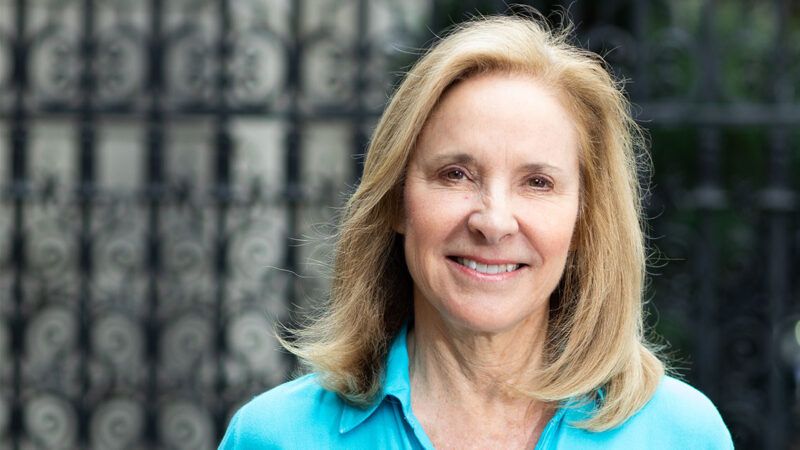Helen Fisher on COVID's Sexless Summer
"Single millennials today, I'm calling them the new Victorians. They really are! They have much less sex than we did in my generation. They're careful."

Experts—both real and self-proclaimed—predicted in spring 2021 that single people, newly vaxxed after a long COVID-19 lockdown, would be on the prowl come summer.
But like so many would-be summer blockbusters, the reality just didn't live up to the hype. While some observers say "hot vax summer" was a bust because of the delta variant and the rise of online porn, Helen Fisher says it's actually just an acceleration of a long, slow decline in one-night stands and hookup culture that predates the pandemic.
Fisher is an anthropologist who is the chief science adviser for Match.com, a senior research fellow at the Kinsey Institute, and the author of, most recently, a revised edition of Anatomy of Love. For each of the past 11 years, she's overseen Singles in America, an annual survey of more than 5,000 singles of every age, gender, and sexual orientation. Across the board, but especially among millennials and Generation Z, she says that "looks are out, emotional maturity is in. Stability is the new sexy."
Fisher appeared on The Reason Interview With Nick Gillespie in December to discuss her research.
Q: The wet, hot, slutty summer of 2021 was a bust. Is that a correct assessment?
A: Absolutely. I actually call it post-traumatic growth. Singles have really just simply grown up. They're now looking for something stable. Yes, looks still count, but not the way they did count.
Q: Is that from just the last couple of years, or is it a phenomenon on a long scale?
A: The trend is longer, but there was a huge leap forward since the pandemic. We compared the most recent Singles in America study with data from this summer to 2019, which is right before the pandemic. I create about 200 questions every year, and then we poll all these singles and assemble all the data to see what's going on. And the single most important question, as it turned out—I didn't know it at the time—was: "Do you want to have a partner who wants to get married?"
In 2019, 58 percent of singles said yes, they'd like to have a partner who wants to get married. And in 2021, 76 percent of singles said yes, they wanted a partner who wanted to get married.
Q: You think that'll hold up as the world normalizes?
A: That is really, I think, the No. 1 question. I don't know the answer.
This is my hypothesis: I think the courtship stage will remain very long. I think people will still be marrying later, particularly millennials, but I think that they will start looking for somebody sooner. I don't think they're gonna marry any sooner, but I think they're gonna start looking for a partner sooner, and all of my data show the longer you court, and the later you marry, the more likely you are to stay together.
Q: We've heard that millennials are lazy, that they're selfish, that they're slackers. It seems like you're painting a different picture.
A: We now have data on 55,000 singles. It is a representative sample and it's real data.
We don't understand who men are; we don't understand who women are; we don't understand much about sex. It's unbelievable how far we need to go still. But the bottom line is, for example, one-third of millennials before the pandemic lived at home. "Well," people say, "they're lazy." No, they were saving their money. They were putting their lives together. Single millennials today, I'm calling them the new Victorians. They really are! They have much less sex than we did in my generation. They're careful.
Q: What explains that diminution in sexual activity at the precise moment when America, as a culture, threw off its primness?
A: This is a question that a lot of scientists have tried to answer and among the things that they end up saying is that a lot of these people are very busy. They've got a lot of extracurricular activities. A lot of these people grew up in what, in the old days, they called a broken home. They see the fragility of relationships. A lot of them are spending an awful lot of time having second jobs and getting through college and then paying off college debt and building a career. It's a very serious generation.
This interview has been condensed and edited for style and clarity. For a podcast version, subscribe to The Reason Interview With Nick Gillespie.

Show Comments (44)